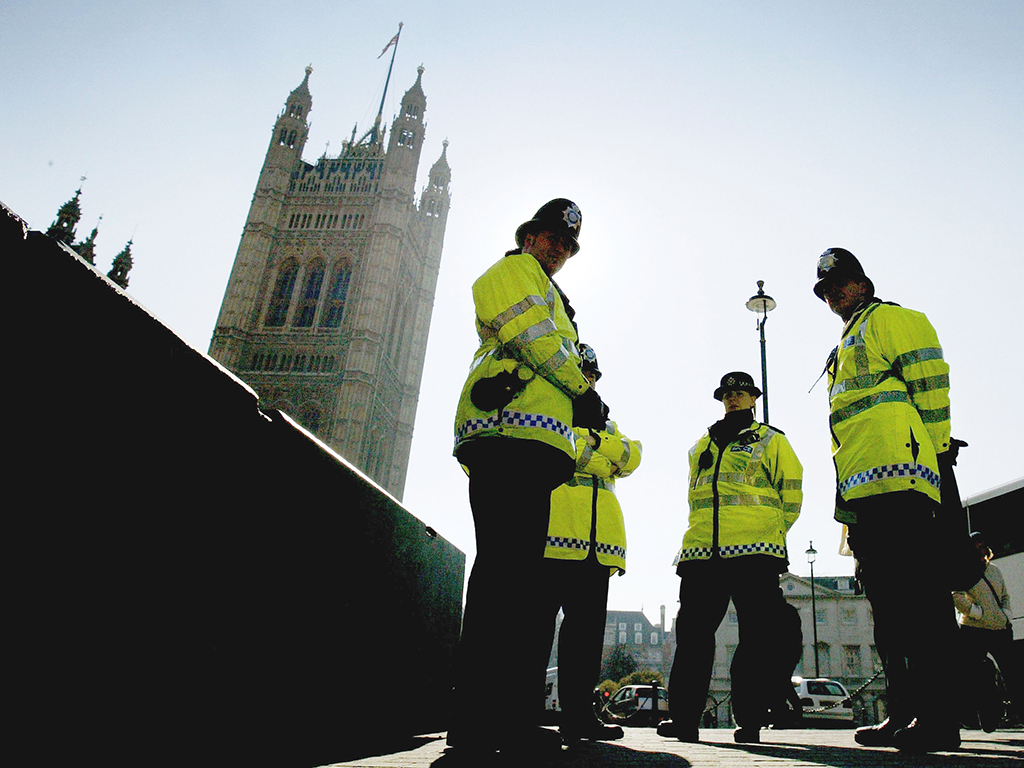
Forgive me for the sparks of rage flying off my keyboard as I write these words, but we need to talk about the Metropolitan Police again. I’m sorry. I know no one is interested. I know we’re bored of this subject. I know there’s a finite amount of attention available when it comes to the issue of protecting women and people are far more interested in how Meghan Markle disgraced herself (or didn’t) during the royal mourning period. So there is simply no time left to discuss the fact that Met officers think it’s perfectly fine to joke about rape.
And even if there were time, we wouldn’t – because what is there to say? The Met is institutionally misogynistic. We know that. We knew it when a police officer nicknamed “the rapist” by colleagues, yet still sanctioned to carry a gun, used his badge to kidnap, rape and murder a young woman in March 2021. We knew it when the Met unlawfully refused permission for women to gather in London in solidarity to grieve her, breaking up the crowd and hurling mourners to the ground. We knew it when the force, despite public outcry, chose to persist in prosecuting individuals for attending.
In truth, the evidence of the Met’s institutional misogyny goes far beyond the murder of Sarah Everard. Take the 398 reports of domestic violence made against Met officers over three years, which led to just nine dismissals. Or the conviction of two officers for taking and sharing photos at the scene of two murdered black women for their own entertainment. The seemingly endless stream of male officers accused of misconduct, abuse, rape – often committed against victims of crimes. The revelations that female officers are afraid to raise concerns about male colleague in case they are abandoned on duty as a petty form of revenge.
The latest scandal isn’t even that dramatic, not in comparison. Two men – PC Jonathon Cobban and Joel Borders, a former officer – have been convicted at the City of London Magistrates’ Court of “grossly offensive” racist, sexist, misogynistic messages. They will be sentenced in November. A third co-defendant, a serving PC, was acquitted. The court was told how, in a WhatsApp group that also included Wayne Couzens, who raped and murdered Everard, they joked about assault, swapped rape fantasies, spewed racism and mocked the disabled. There was a joke about using someone with Down’s Syndrome as taser “target practice”, another about sexually assaulting victims of domestic violence.
These messages were sent several years ago, before Couzens murdered Everard. Are these men remorseful now for the way they talked about the people they were employed to serve and protect? Are they hell. Fiona Hamilton, the crime reporter for the Times, reported at the trial how one – Borders, who has since left the Met – defended joking about raping a female colleague (“[she would] lead me on then get me locked up when i rape and beat her! Sneaky bitch”) on the grounds that she was “underhand” and he was concerned she would make an allegation of sexual assault against him. In other words, yes he joked about raping her, but it’s fine because she deserved it. He claimed he was an “exemplary” officer – because he always stopped at traffic lights and helped people to cross the road. The attitude while giving evidence was one of outraged indignation – he and his colleagues had done nothing wrong, the messages were “jokes”, getting upset about them is “ridiculous”.
I have no doubt that Borders sincerely believes all this. The trouble is that someone who jokes about raping women and does not feel a hint of contrition when one of his colleagues then goes on to rape and murder a woman cannot be trusted in a job that involves protecting women. To be able to make such horrifically crass comments about women – or black people, or disabled people – at work requires a capacity to dehumanise others that is wholly incompatible with being a police officer. If Borders does not see that, it is because he lacks the compassion and emotional intelligence necessary to hold a position of such power. And it is likely that he always did.
Borders and his co-defendants pleaded not guilty and their lawyers attempted to have the case dismissed in July, but they did not deny sending the messages. The defence they used, Hamilton reported, was that “the messages did not reach the legal bar of being ‘grossly offensive’, in part because they were in a private group”. Legally, that was the issue up for the judge to decide. In terms of the Met’s institutional misogyny problem, it is irrelevant. This is what officers think of the people they are tasked with defending. These are the attitudes they can get away with. According to the judge, the messages were “sickening” and “disgusting”; according to Met Commander Jon Savell they were “despicable”; but according to the Met’s toxic culture as revealed by the men themselves, you can be an “exemplary” police officer even if you merrily discuss raping and beating women, as long as you obey the Highway Code.
No one cares, of course. There’s Meghan Markle to rail at instead, and a new Met commissioner who is apparently going to make everything OK again. But next time some clueless politician suggests that the way to make women feel safe is to put undercover police officers in nightclubs, we should remember what those police officers think of the women they are meant to protect.






